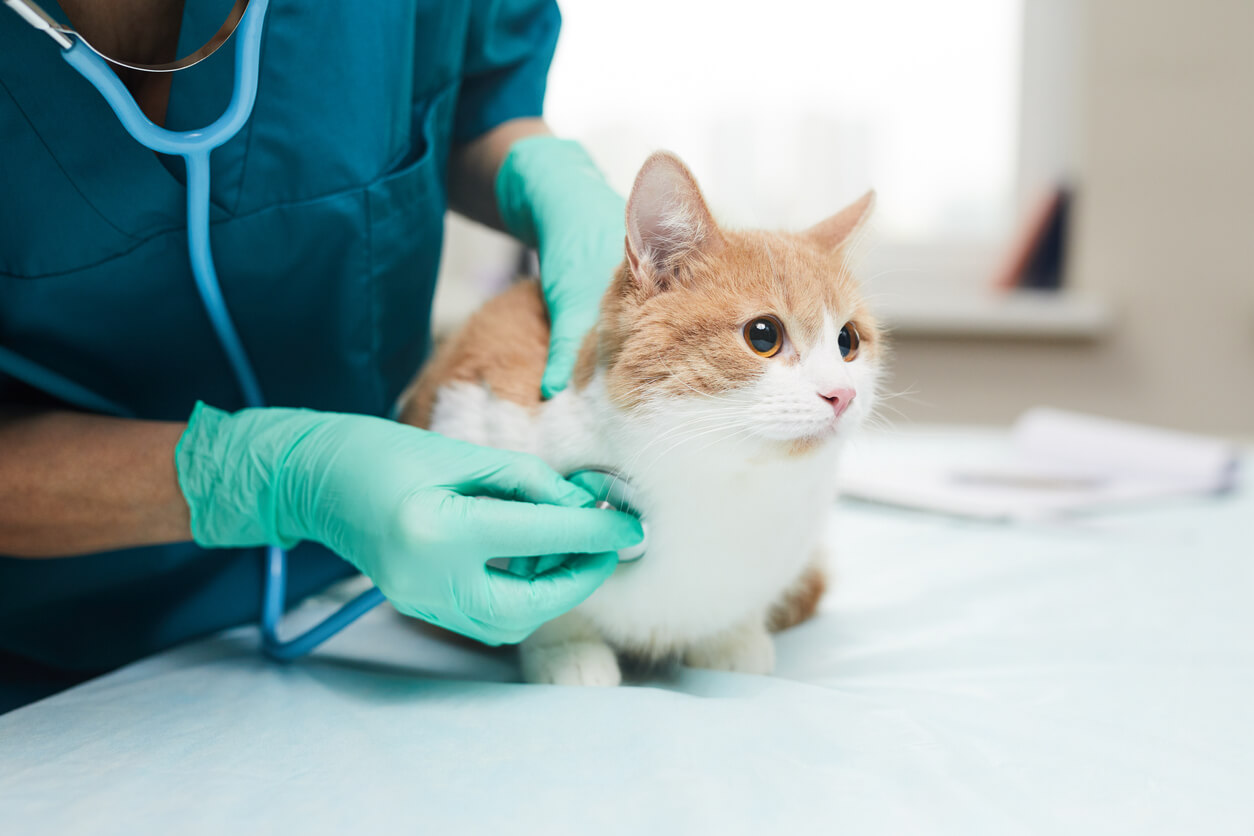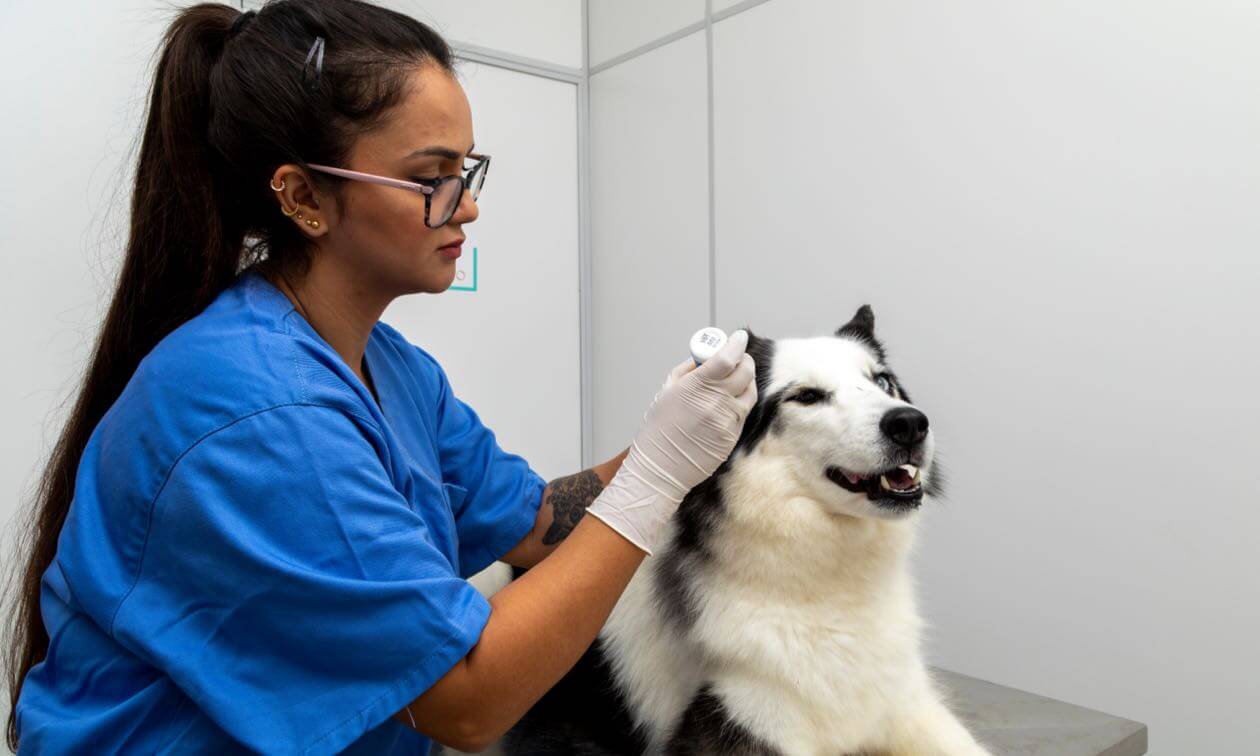Why Checking Out a Veterinarian Enterprise Can Make Sure the Long-Term Health of Your Pet
Why Checking Out a Veterinarian Enterprise Can Make Sure the Long-Term Health of Your Pet
Blog Article
Vaccination Standards From Your Relied On Veterinarian
Inoculation standards offered by your relied on vet play a vital function in securing your animal's health and wellness and wellness. Core injections are fundamental for all animals, while non-core vaccines can be tailored to environmental direct exposures and specific way of livings. Comprehending the subtleties of vaccination timetables, which begin as very early as six to eight weeks, is important for ideal protection. Furthermore, dealing with usual misunderstandings bordering vaccines can even more improve animal proprietors' self-confidence in these preventive actions. As we check out these essential facets, it becomes progressively clear why regular examinations with your vet are important for informed decision-making.

Value of Vaccinations
Vaccinations play a critical function in protecting pets against a range of preventable conditions. By stimulating the body immune system to recognize and fight certain virus, vaccinations considerably minimize the incidence of infectious illness that can influence a pet dog's health and long life. Not just do inoculations safeguard private animals, yet they additionally add to herd resistance, consequently decreasing the overall occurrence of illness in the family pet populace.
Prompt vaccinations assist to minimize the spread of diseases such as rabies, parvovirus, and distemper, which can have extreme repercussions for both humans and animals. Vaccinations are frequently a requirement for boarding facilities, brushing solutions, and pet dog parks, making them necessary for those who desire to mingle their family pets.

Core Vaccinations for Pet Dogs
While the details vaccination requirements of animals can differ based upon individual aspects, core vaccines are globally suggested to shield against the most major and usual illness (Pet Vaccinations). Core injections are those deemed important for all family pets, despite their way of life or geographical area, as they guard versus possibly fatal and highly transmittable ailments
For canines, the core injections include those for canine distemper, parvovirus, adenovirus (liver disease), and rabies. Adenovirus can result in liver disease, while rabies is a zoonotic illness that poses a risk to both family pets and people.
In pet cats, core injections incorporate feline panleukopenia, feline calicivirus, feline herpesvirus (rhinotracheitis), and rabies. Feline panleukopenia is a very transmittable viral disease that affects the body immune system and intestinal tracts. Calicivirus and herpesvirus are major factors to top respiratory infections in pet cats, while rabies continues to be a crucial problem for public health and wellness.
Speak with your vet to ensure your pets obtain their core inoculations on time.
Non-Core Vaccines Explained
Non-core vaccinations are tailored to attend to particular dangers related to a pet's exposure, atmosphere, and lifestyle to certain diseases. Unlike core vaccinations, which are widely recommended for all pets, non-core injections are considered based upon private scenarios. These vaccinations are specifically crucial for family pets that might come across special microorganisms because of their geographical place, travel practices, or tasks.
Instances of non-core injections consist of those for Bordetella bronchiseptica, which is connected to kennel cough, and Lyme disease, triggered by ticks. Pet dogs that frequently communicate with various other animals, such as those in boarding centers, pet dog parks, or brushing environments, may benefit from Bordetella vaccination. Similarly, if you live in an area where Lyme illness prevails, vaccinating versus this illness can be a sensible option for outdoor-loving dogs.
Other non-core injections might include those for leptospirosis, canine flu, and feline leukemia, relying on the particular risk aspects present. It is vital to have a comprehensive discussion with your vet regarding your pet dog's lifestyle and the prospective need for these vaccines, guaranteeing a customized vaccination strategy that best secures your furry good friend.
Inoculation Set Up Introduction

As pets grow, it is very important to stick to the recommended booster inoculations. Veterinarian Enterprise. For grown-up animals, core vaccines are normally provided each to three years, depending on the specific vaccination and neighborhood laws. Non-core injections might be recommended based on lifestyle factors and regional illness frequency, demanding a customized get more strategy
Regular veterinary exams are important for updating inoculation timetables. Your vet can provide support on one of the most suitable immunizations for your family pet, considering age, wellness condition, and ecological threats. By staying aggressive and educated, animal proprietors can guarantee their furry friends receive effective and timely inoculations, therefore protecting their health and wellness throughout their lives.
Common Misconceptions Concerning Injections
Mistaken beliefs concerning pet dog inoculations can cause confusion and unwillingness amongst animal owners pertaining to the immunization procedure. One widespread misconception is that vaccines are unnecessary for indoor animals. While it's true that interior animals encounter reduced risks, they are not completely immune to conditions, as microorganisms can be presented via numerous means, consisting of human clothes and various other Home Page pets.
One more mistaken belief is that vaccinations can trigger the diseases they intend to avoid. In truth, many vaccines consist of suspended or undermined microorganisms, which can not cause condition in healthy and balanced pets. Some pet owners additionally believe that their animals should not be immunized if they are already healthy; nonetheless, vaccinations are a proactive measure that assists protect against the onset of illness.
Additionally, lots of animal proprietors are afraid that vaccines will certainly result in long-term health and wellness problems. While adverse effects can occur, they are generally light and short-term. The benefits of vaccination-- safeguarding animals from possibly dangerous conditions-- much surpass the risks. Recognizing these common misconceptions is critical for liable pet dog ownership and making sure the health and wellness and safety and security of your hairy friends. Always consult your veterinarian for exact details customized to your animal's details requirements.
Verdict
In recap, adherence to vaccination standards is critical for making certain the health and durability of pet dogs. Core vaccines supply necessary protection versus significant diseases, while non-core injections resolve details dangers based upon specific lifestyles. Establishing an extensive vaccination schedule, along with normal vet exams, facilitates ideal wellness management. Dispelling usual myths surrounding vaccinations better reinforces the significance of informed decision-making in pet dog treatment. Eventually, a positive strategy to inoculations is Your Domain Name essential for keeping animal wellness.
Not just do inoculations secure private animals, but they likewise add to herd immunity, consequently minimizing the general occurrence of conditions in the family pet population.
Misunderstandings regarding animal inoculations can lead to complication and reluctance amongst animal proprietors relating to the booster shot procedure. While it's true that indoor animals deal with reduced risks, they are not entirely immune to conditions, as microorganisms can be introduced through various ways, consisting of human clothing and various other pet dogs.
Some family pet owners likewise believe that their family pets must not be immunized if they are currently healthy and balanced; nevertheless, inoculations are a positive procedure that aids prevent the start of disease.
The benefits of vaccination-- protecting pets from potentially lethal diseases-- much outweigh the risks.
Report this page